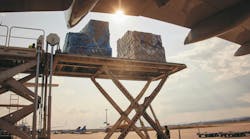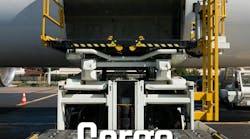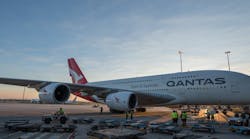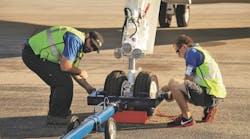The aviation industry has always fascinated us with the passion of flight, but it is way more than just flying. Behind the scenes, a complex world of careers exists, crucial for the industry's success. While pilots are the face of aviation, they are only one part of a much larger picture. According to Air Transport Action Group (ATAG), the aviation industry provides a total of 87.7 million jobs worldwide.
Jainita Hogervorst, director of Aerviva Aviation Consultancy, a company based in Dubai specializing in aviation recruitment and document management, will explain the lesser-known but essential non-pilot careers that contribute to the aviation industry's growth and stability. These roles range from maintaining aircraft and managing airport operations to delivering exceptional customer service.
What are Popular Non-Pilot Positions Today?
The aviation industry is a vast and dynamic field offering a wide range of career opportunities, many of which extend far beyond the traditional image of pilots in the cockpit. Air Transport Action Group shares, that around 11.3 million people work in the aviation industry directly. These jobs include airport operators (648,000), other airport-based roles (5.5 million - retail, car rental, customs and immigration, freight forwarders, and catering), airlines (3.6 million (flight and cabin crews, executives, ground services, check-in, training, maintenance staff), civil aerospace (1.3 million (engineers and designers of civil aircraft, engines, and components), air navigation service providers (237,000 (air traffic controllers, executives).
These jobs are, on average, 4.3 times more productive than average jobs in the economy.
"The aviation industry offers an array of career paths, each with its own unique set of responsibilities and opportunities. Whether your interests lie in management, engineering, operations, safety, or customer service, there's a place for you," says Hogervorst.
She defines a few main groups of non-pilot positions, worth looking at nowadays:
Safety Roles
Professionals in safety roles are responsible for ensuring that safety standards are met and maintained. This includes conducting inspections, audits, and investigations to identify and mitigate potential hazards, as well as enforcing safety regulations.
Qualifications for safety roles often involve experience in aviation, knowledge of safety regulations, and, almost always, specialized certifications. Attention to detail, analytical skills, and a commitment to safety are crucial for success in these roles.
Logistics and Planning
Logistics and planning professionals are tasked with ensuring the smooth and efficient operation of airports and airlines. They coordinate schedules, allocate resources, manage cargo logistics, and oversee airport facilities, all of which are essential for delivering a seamless travel experience.
Qualifications in this category can vary, but a background in logistics, transportation, or business management is usually required. Strong organizational, communication, and problem-solving skills are essential for success in these roles.
Aviation/Airport Management
Aviation and airport managers are responsible for the overall management and administration of airports, airlines, and aviation organizations. They oversee budgeting, infrastructure maintenance, customer service, and compliance with regulations, among other critical functions.
A degree in aviation management, business administration, or a related field is commonly required for management roles. Relevant experience in aviation operations or management is also highly regarded. Leadership, organizational, and communication skills are essential for individuals in these positions.
Educational Paths and Skillsets for Non-Pilot Roles
For those aspiring to pursue non-pilot careers in the aviation industry, a well-defined educational path and the acquisition of specific skills and certifications are essential. Director of Aerviva Aviation Consultancy explains, "The aviation industry is highly regulated, and qualifications are critical to ensuring safety and compliance. If you are going for a managerial role, it is needed to pursue a degree in aviation management or aviation administration. These programs provide a comprehensive understanding of airport and airline operations, finance, marketing, and strategic planning. On the other hand, if your interest is aviation maintenance, aircraft maintenance technicians typically attend FAA-approved aviation maintenance technician schools or programs. They learn to inspect, repair, and maintain aircraft systems, engines, and avionics."
Additionally, a solid knowledge of modern technologies, mathematical mindset and the capability to swiftly adapt to technological innovations are essential for success in non-pilot roles. "Proficiency in technology is increasingly vital in aviation careers. Aviation professionals must be comfortable working with advanced software, navigation systems, and aircraft diagnostic tools. Also, a strong foundation in mathematics is crucial for various non-pilot roles in aviation. Professionals often use mathematical concepts to calculate aircraft performance, manage resources, and make critical decisions," says Hogervorst.





